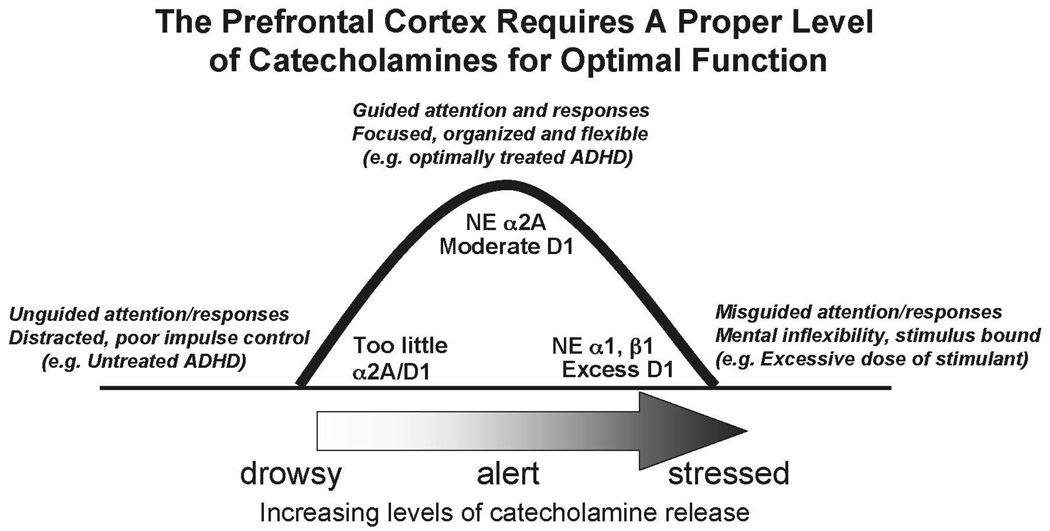Figure 4.
The regulatory functions of the PFC are highly dependent on its neurochemical state. The catecholamines NE and DA are released based on our state of arousal. Either too little or too much catecholamine release is detrimental to PFC function: there is an inverted U dose-response relationship. Inadequate catecholamine release is associated with fatigue and ADHD, and excessive catecholamine release occurs during uncontrollable stress or very high doses of stimulant medications. NE has its highest affinity for alpha-2A receptors and has lower affinity for alpha-1 and beta-1 receptors. Thus, different receptors are engaged based on the amount of NE released in the PFC. Therapeutic doses of stimulants, atomoxetine, or guanfacine likely normalize catecholamine transmission in patients with inadequate DA or NE levels, or both, thus bringing PFC function to more optimal levels at the top of the inverted U.

